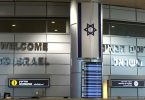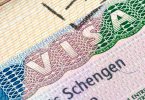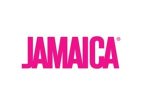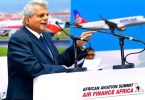First announced in November 2020, Korean Air and Asiana are getting closer to operate as one airline. A merger between the two dominating airlines in the Republic of Korea means they need aldo the approval by foreign authority to maintain traffic rights to key markets.
Korea granted the request of merger in February 2022
Countries signed off on this merger:
- Turkey in Feb 2021
- Taiwan in May 2021
- Thailand in May 2021
- Philippines in May 2021
- Malaysia in September 2021
- Vietnam in November 2021
- Singapore in February 2022
- Australia in September 2022
- China in December 2002
- UK in March 2023
- Japan in January 2024
- European Union in February 2024
The authorization by the United States of America is still pending.
A Giant Step closer to Merger approved today
Today the European Commission has approved, under the EU Merger Regulation, the proposed acquisition of Asiana Airlines Inc. (‘Asiana’) by Korean Air Lines Co., Ltd (‘Korean Air’). The approval is conditional upon full compliance with the remedies offered by Korean Air.
Today’s decision follows an in-depth investigation of the proposed acquisition. Korean Air is South Korea’s largest airline offering international air passenger and cargo services. Asiana, the second largest airline in South Korea, provides similar services. Both airlines have a significant presence in the European Economic Area (‘EEA’).
They operate a network of domestic routes, short-haul routes in Asia as well as long-haul routes between South Korea and the rest of the world.
The EU Commission’s preliminary concerns
The preliminary investigation indicates that the companies are strong and close competitors in the provision of passenger and cargo air transport services between the EEA and South Korea. In particular, the Commission found that:
- The transaction could reduce competition in the provision of passenger transport services on four routes between South Korea and the EEA. In those routes, Korean Air and Asiana compete head-to-head, and in two of those routes, they are the only two companies offering direct services. Other airlines may be unlikely to exert sufficient competitive pressure on the merged entity.
- The transaction could eliminate potential competition in passenger transport services between the EEA and South Korea.
- The transaction could reduce competition in the provision of cargo transport services between Europe and South Korea. Korean Air and Asiana compete head-to-head in carrying cargo between the EEA and South Korea. Other competitors face regulatory and other barriers to expand their services and may be unlikely to exert sufficient competitive pressure on the merged entity.
- Despite the severe impact of the coronavirus pandemic in the passenger air transport sector, it is unlikely that Asiana and Korean Air would stop competing or be significantly less competitive absent the transaction.
The transaction was notified to the Commission on 13 January 2023. Korean Air and Asiana decided not to submit commitments. The Commission had 90 working days, until 5 July 2023, to take a decision.
The opening of an in-depth investigation does not prejudge the outcome of the investigation.
Companies and products
Korean Air, headquartered in South Korea, is a full-service carrier with domestic and international operations in passenger and cargo air transport. It operates a hub-and-spoke network with its principal hub at Incheon airport in Seoul. Korean Air is a member of the SkyTeam alliance.
Asiana, headquartered in South Korea, is a full-service carrier with domestic and international operations in passenger and cargo air transport. Asiana is a member of the Star Alliance.
Merger control and procedure
The Commission has the duty to assess mergers and acquisitions involving companies with a turnover above certain thresholds (see Article 1 of the Merger Regulation) and to prevent concentrations that would significantly impede effective competition in the EEA or any substantial part of it.
The vast majority of notified mergers do not pose competition problems and are cleared after a routine review.
The Commission’s investigation
During its in-depth investigation, the Commission gathered extensive information and received feedback from market participants and other stakeholders.
Following its market investigation, the Commission had concerns that the transaction, as initially notified, would harm competition in the markets for:
- Air cargo transport services between Europe and South Korea, and
- Passenger air transport services on routes between Seoul and certain European destinations, specifically Barcelona, Paris, Frankfurt, and Rome.
The Commission found that Korean Air and Asiana compete head-to-head in carrying cargo and passengers between the EEA and South Korea. Together, they would have been by far the largest carrier on these routes removing an important alternative for customers.
Other competitors face regulatory and other barriers to expand their services and would have been unlikely to exert sufficient competitive pressure on the merged company. This would likely have led to increased prices or decreased quality for passengers and cargo customers.
The proposed remedies by the EU
To address the Commission’s competition concerns, Korean Air offered the following remedies:
- Cargo commitments: Korean Air will divest Asiana’s global cargo freighter business. The divestment includes freighter aircraft, slots, traffic rights, flight crew, and other employees, as well as customer cargo contracts, among others. Korean Air can only implement the acquisition of Asiana following the Commission’s approval of a suitable buyer for the cargo divestment. Among other requirements, the buyer must be able and have the incentives to operate the divested business in a viable manner and to compete effectively with the merged company.
- Passenger commitments: Korean Air will make available to rival airline T’Way the necessary assets to enable it to start flight operations on the four overlap routes. The assets include slots and traffic rights as well as access to the required aircraft. T’Way is a South Korean airline with a hub in Seoul from where it operates a network of routes in East Asia and beyond. Korean Air has committed not to complete the merger until T’Way has started operating on the four overlap routes.
These commitments fully address the competition concerns identified by the European Commission.
After collecting the feedback of customers and competitors during a market test of the proposed commitments, the Commission concluded that the commitments preserve effective competition in cargo and passenger transport between South Korea and the EEA.
The Commission therefore concluded that the transaction, as modified by the commitments, would no longer raise competition concerns. The decision is conditional upon full compliance with these commitments.
Under supervision of the Commission, an independent trustee will monitor their implementation.
Companies and products
Korean Air, headquartered in South Korea, is a full-service carrier with domestic and international operations in passenger and cargo air transport. It operates a hub-and-spoke network with its principal hub at Incheon airport in Seoul. Korean Air is a member of the SkyTeam alliance.
Asiana, headquartered in South Korea, is a full-service carrier with domestic and international operations in passenger and cargo air transport. It has its principal hub at Incheon airport in Seoul. Asiana is a member of the Star Alliance.
(eTN): Korean Air and Asiana Merger is One Giant Step Closer | re-post license | post content























